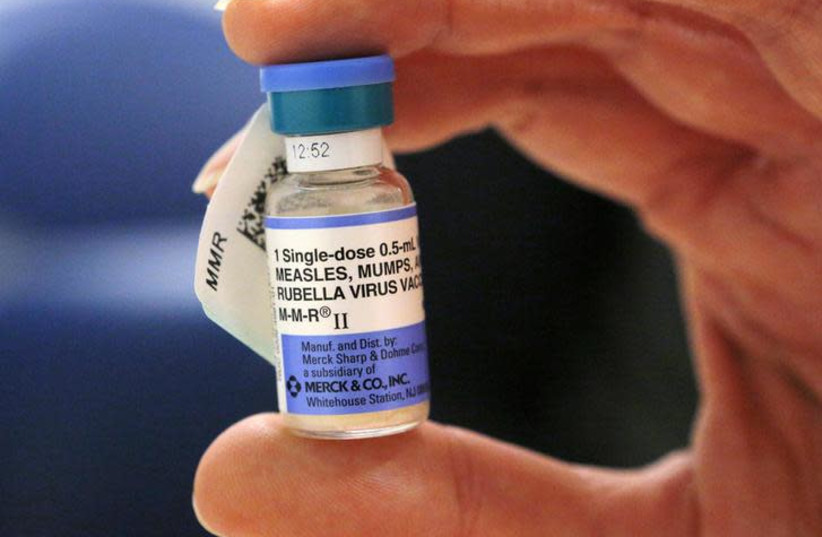The World Health Organization has warned that the world could see unprecedented measles outbreaks due to disruptions in immunization services in dozens of countries because of the COVID-19 pandemic.
While the world saw more than an 80% decrease in reported measles cases last year, many of which were likely prevented by the methods used to mitigate the virus – masking, handwashing and social distancing – more than 22 million infants missed their first dose of measles vaccine. That is three million more children who missed their first dose than in 2019, marking the largest increase in two decades and creating dangerous conditions for outbreaks to occur, according to the WHO.
In addition, only 70% of children received their second dose of the measles vaccine.
There were only 7.5 million cases of measles reported in 2020, the WHO said. However, measles surveillance also deteriorated. The lowest number of specimens was sent for laboratory testing in over a decade.
In Israel, thousands of children missed their measles vaccines during the first wave of the pandemic when they did not feel safe visiting Tipat Halav, according to nurse Rachel Fish, a manager in the Public Health Division of Maccabi Health Services.

However, she said that Maccabi and the other health funds managed to contact those who missed their shots and got them vaccinated during subsequent waves. To date, Israel has reached the same percentage of vaccination as before the pandemic.
For Maccabi, this means that around 90% of eligible children are vaccinated against the measles virus.
“At the beginning of COVID, when parents were afraid to come, we saw a real decline,” Fish said, “but parents have come back.”
However, not all Israelis are vaccinated, a situation that has led to measles outbreaks in the country in the past – about every seven years, according to Fish. The last one was in 2017-2018.
To protect communities from the spread of the measles virus, 95% coverage is needed.
And with travel resuming, measles could enter Israel.
“Even before the pandemic, we were seeing how even small pockets of low measles immunization coverage could fuel unprecedented outbreaks, including in countries where the disease had been considered eradicated,” said Ephrem Tekle Lemango, UNICEF associate director for immunization. “Now, COVID-19 is creating widening gaps in coverage at a pace we haven’t seen in decades.
“While we have not seen an increase in cases yet, measles is simply too contagious,” he continued. “If we do not act, gaps will become outbreaks, and many children will be exposed to a preventable but potentially deadly disease.”
“We must act now to strengthen disease surveillance systems and close immunity gaps, before travel and trade return to pre-pandemic levels, to prevent deadly measles outbreaks and mitigate the risk of other vaccine-preventable diseases,” added Dr. Kevin Cain, the global immunization director for the Centers for Disease Control and Prevention.
Measles is one of the most contagious and deadly viruses, but it is almost entirely preventable by vaccination. The WHO estimated that as many as 30 million deaths were averted globally over the past 20 years through the measles shots.
“While reported measles cases dropped in 2020, evidence suggests we are likely seeing the calm before the storm as the risk of outbreaks continues to grow around the world,” said Dr. Kate O’Brien, director of the WHO’s Department of Immunization, Vaccines and Biologicals. “It’s critical that countries vaccinate as quickly as possible against COVID-19, but this requires new resources so that it does not come at the cost of essential immunization programs.
“Routine immunization must be protected and strengthened,” she continued, “otherwise, we risk trading one deadly disease for another.”
